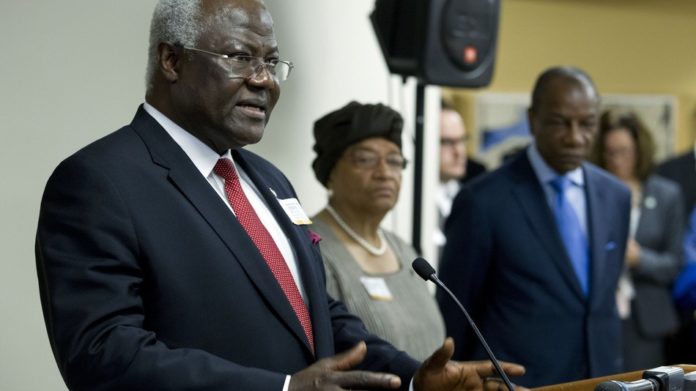Ebola outbreak reversed economic growth in hard-hit African nations

Leaders of the three nations hit hardest by the ongoing Ebola outbreak in West Africa are seeking to build international support for an $8 billion aid package that would help revitalize their flagging economies. At a conference in Washington on Friday, the World Bank revealed new data showing the extreme economic impacts that the disease has had on Liberia, Guinea and Sierra Leone.
In Sierra Leone, where the economy had been growing rapidly before the outbreak hit last year, the effects of Ebola and a simultaneous collapse of the mining sector resulted in the likelihood of “an unprecedented GDP contraction” that is now estimated at 23.5%.
Sierra Leone’s economy lost $1.4 billion as a result of the outbreak, according to new World Bank data.
To put that into perspective, the country’s total GDP for all of 2013 was $4.2 billion.
Part of the reason why Sierra Leone was hit so hard had to do with the country’s mining sector, which shut down due to both a lack of labor as well as a steep drop in international iron ore prices, the latter of which had nothing to do with Ebola. Iron ore was the worst performing commodity on global markets in 2014, with prices falling by 50%.
Guinea lost $535 million due to the outbreak, the World Bank found, while Liberia suffered a smaller loss in GDP of about $240 million.
The World Bank projects that Liberia will be the only country affected by Ebola that will still see economic growth this year, but at a slower rate than was originally predicted before the disease struck.
On Friday, the World Bank Group announced new financing of at least $650 million during the next year and a half to help the three countries recover and develop. Other countries also pledged additional financing.
“Even as we work relentlessly to get to zero new Ebola cases, the international community must help Guinea, Liberia and Sierra Leone jumpstart their recovery and build a safer, more prosperous and resilient future for their people,” said Jim Yong Kim, president of the World Bank Group. “Many of us have acknowledged that the international community was slow to react to Ebola. Let’s show that we have learned this lesson by supporting an effective and sustainable recovery that also prepares these countries—and the rest of the world—for the next pandemic.”
While the outbreak has significantly diminished in recent weeks, it is not yet fully extinguished. As of April 17, the outbreak had killed 10,702 people and sickened thousands more.
According to the World Health Organization (WHO), in the week leading up to April 12, there were a total of 37 confirmed cases of Ebola, compared with 30 the previous week. The disease is mainly ongoing in Guinea and Sierra Leone, with only one new confirmed cases of Ebola reported in Liberia since late March.
